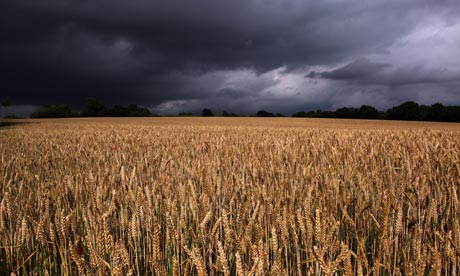Last July, the Agriculture Department’s Animal and Plant Health Inspection Service found unapproved GMO wheat at Montana State University. The government could not definitely determined how the seeds, developed almost a decade ago by Monsanto but never commercialized, made their way into the university plots. Although some government officials have privately told the Genetic Literacy Project that they suspect the wheat may have been planted by anti-GMO activists–a suspicion they also have of a prior similar incident in Oregon last April–they’ve been unable to crack the case.
The wheat was grown in more than 100 test plots in 16 states over several years, but Monsanto wound down the last of the trials that began in 2003 in 2005, because of fears that consumers might be resistant. Unlike the other big crops – corn, soybeans, cotton and canola – American farmers have never raised GM wheat on a commercial basis. The Oregon field trials stopped in 2001.
The findings have caused consternation among farmers and exporters. The United States is by far the world’s largest grower of biotech crops, planting 173 million acres in 2013–almost 40 percent of all biotech acreage globally. Non-GMO wheat is one of the country’s key agricultural exports.
As in the Oregon case, anti-GMO activists are leveraging the incident to fan public opposition to GE technology. “I’d like to say it was surprising that these events happened, but it’s not really. It’s become the norm, rather than the exception,” said Bill Freese, a frequent critic of biotech crops who is a science policy analyst at the Center for Food Safety. “They’re not able to prevent contamination from these experimental (genetically engineered) crops to commercial crops, and that’s just caused headaches, huge headaches, very serious financial losses for American agriculture. What’s it going to take to have proper oversight?”
CFS has called for a moratorium on all biotech trials “until the USDA can get its act together.”
John Youngberg, executive vice president with the Montana Farm Bureau, said discoveries such as the recent wheat varieties can provide fodder for critics and make it more difficult for farmers and biotech crop supporters.
“We’re watching this sort of thing,” Youngberg said. “It’s easy to say it’s bad for you. It always casts a cloud over” the benefits of the technology.


